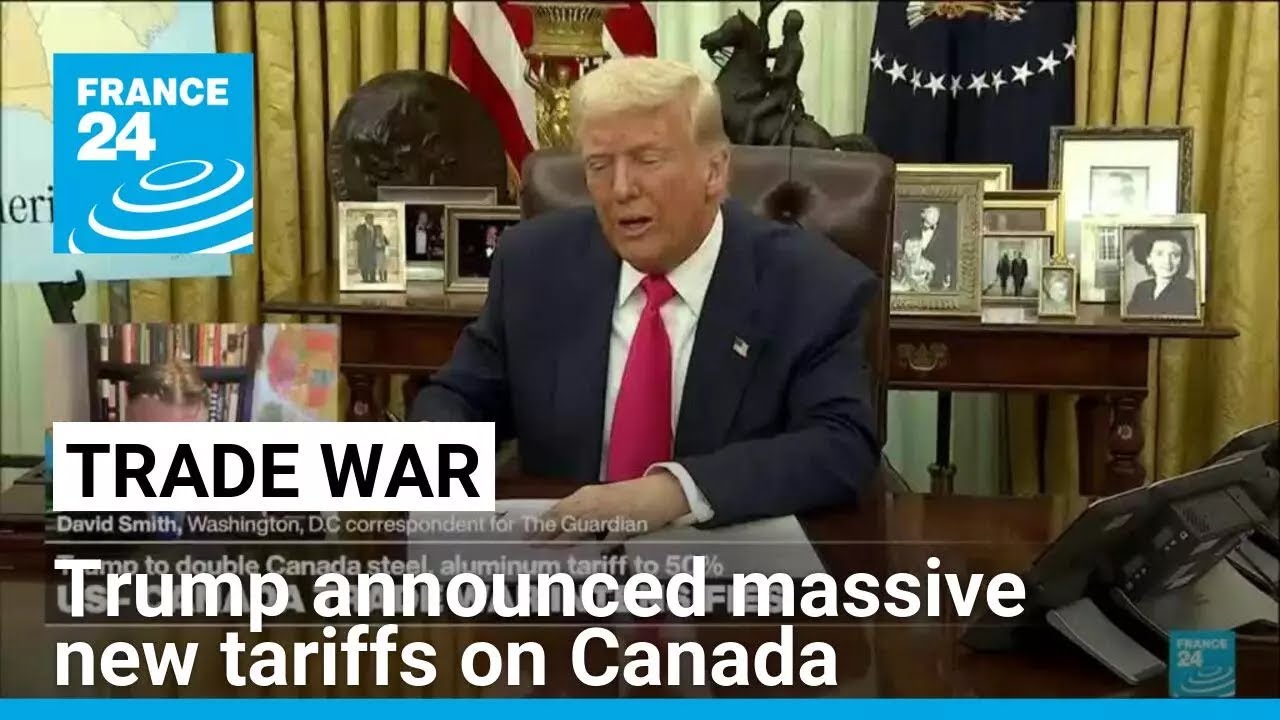Image: whatfinger.com
On Tuesday, the mood in Windsor, Ontario was one of shock and uncertainty as President Trump’s decision to impose 25 percent tariffs on most categories of Canadian exports took effect. The Ambassador Bridge, which carries about $300 million worth of auto parts each day from Detroit into Canada, saw trucks still rolling across as usual, but the atmosphere had shifted dramatically in Windsor.
Flavio Volpe, head of the Automotive Parts Manufacturers’ Association in Canada and a member of Prime Minister Justin Trudeau’s Council on Canada-U.S. Relations, expressed his dismay at Trump’s actions: “We’ve built two societies on the same values,” said Mr. Volpe. “The man in the White House did a U-turn and drove right over us.”[NYT]
This move has left many Canadians grappling with not only the immediate economic impacts but also the broader implications for their relationship with the United States. Prime Minister Justin Trudeau and anxious business leaders throughout Canada are focused on ending these tariffs as quickly as possible, recognizing that their export-dependent economy could be sent into a recession.
The automotive industry, which is one of Canada’s largest sectors, has been particularly affected by Trump’s decision. Historically balanced trade between the U.S. and Canada in this sector means parts often swirl around between both countries before ending up in vehicles sold in dealerships. The tariffs are being paid by importers, either other part makers or automakers, who will pass on these costs to suppliers through deductions from contracts. With single-digit profit margins for parts suppliers, such deductions would make them instantly unprofitable and force many to stop shipments within a week due to cash reserve limitations.[CBC]
This sudden change has left some companies scrambling to adapt. Bill Slater, president of a United Steelworkers local in Sault Ste. Marie, Ontario, noted that Algoma Steel laid off about 20 salaried employees due to the tariffs, with more hourly workers at risk as well.
The trucking industry also experienced mixed fortunes, with some drivers seeing increased business from companies moving goods before tariff deadlines while others faced layoffs due to customers canceling shipments. Stephen Laskowski, president of the Ontario Trucking Association, shared his observations: “Some had a surge in business as companies moved to get products into the United States before the tariffs came into effect,” he said. “Others were laying off drivers because customers were canceling shipments.”
The forestry industry, which has long dealt with contentious U.S. duties on softwood lumber, is now facing an unprecedented situation. Kurt Niquidet, president of the British Columbia Council of Forest Industries, stated: “Adding a 25 percent tariff really puts us into unprecedented territory.” Lumber mills in Western Canada are already dealing with a 14.4 percent tariff expected to rise this summer, making Tuesday’s addition particularly troubling.[CNN]
While some companies have started idling workers and cutting back on operations in response to the tariffs, others are looking for ways to mitigate their impact. Lee Miller, a retired electrician from Saint John, New Brunswick, canceled his annual winter motorhome trip through sunny Southern states like Florida after Trump’s tariff announcements: “As soon as Trump started talking tariffs, I said, ‘Nope, not going,’” Mr. Miller said. He plans to avoid entering the U.S. for the duration of Trump’s presidency.[CBC]
Government-owned liquor stores in Ontario began pulling U.S. beer, wine, and spirits from shelves as retaliatory moves against the tariffs, while a 100 million Canadian dollar contract with Elon Musk’s Starlink satellite service was canceled to provide internet services in rural areas.
Economists predict that Canada’s export-dependent economy will face severe challenges due to these tariffs, potentially leading to a recession. The Bank of Canada has warned that such a trade shock is unprecedented and could be more damaging than the Smoot-Hawley tariffs of 1930.[Bank of Canada]
As tensions rise, Canadians remain puzzled by Mr. Trump’s motivations and objectives for the tariffs. Some speculate that his actions could be part of a broader strategy to destabilize economies globally while others believe it is simply about imposing tariffs to fund tax cuts in the U.S. Jean Simard, president of the Aluminum Association of Canada, who previously fought a successful battle against 10 percent tariffs on Canadian aluminum exports, now faces additional threats from Trump’s administration.[The Conversation]
In the face of these challenges, Canada must navigate a complex and uncertain path forward. As Mr. Trudeau suggested, “This is what I’m able to do to my closest allies — think about what’s awaiting you.” The repercussions from Trump’s tariffs have created an atmosphere of economic anxiety and anger among Canadians, with many questioning whether the relationship between these long-standing neighbors will ever return to its previous state.[NYT]
As the days pass and the full impact of the tariffs becomes clearer, Canada will be looking for ways to rebuild its economic ties with the United States while safeguarding its own interests. Will this moment mark a turning point in North American trade relations, or can cooler heads prevail? As both nations grapple with these questions, one thing is certain: the future relationship between the U.S. and Canada will never be quite the same again.


Leave a Reply